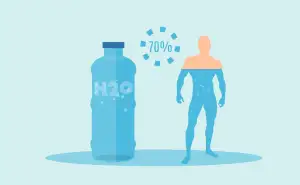Unlocking the Potential: Exploring the Up Syndrome Phenomenon in Health

- Understanding the concept of "Up Syndrome"
- Exploring the connection between "Up Syndrome" and Down Syndrome
- The impact of "Up Syndrome" on individuals and their families
- Recognizing the challenges and opportunities associated with "Up Syndrome"
- Promoting inclusivity and support for individuals with "Up Syndrome"
- Resources and support for families affected by "Up Syndrome"
In recent years, there has been growing recognition and understanding of a phenomenon called "Up Syndrome". This unique condition, also known as Trisomy 21-UP, is characterized by an extra chromosome that affects individuals in a distinct way. While it shares some similarities with Down Syndrome, "Up Syndrome" presents its own set of challenges and opportunities. In this article, we will delve into the concept of "Up Syndrome" and explore its impact on individuals and their families. By shedding light on this lesser-known syndrome, we hope to promote inclusivity and support for those affected by "Up Syndrome".
Understanding the concept of "Up Syndrome"
Understanding the concept of "Up Syndrome" is crucial in order to appreciate its significance and impact. "Up Syndrome" is a term used to describe a unique phenomenon where individuals with Down Syndrome display exceptional abilities and talents. It is characterized by an upward trajectory in their cognitive, social, and physical development. This phenomenon challenges traditional notions about the limitations associated with Down Syndrome and highlights the incredible potential that exists within each individual. By recognizing and understanding "Up Syndrome," we can unlock new possibilities for individuals with Down Syndrome and promote inclusive environments that celebrate their diverse abilities.
Exploring the connection between "Up Syndrome" and Down Syndrome
Exploring the connection between "Up Syndrome" and Down Syndrome, it is important to note that these two conditions are related but distinct. While Down Syndrome is caused by an extra copy of chromosome 21, "Up Syndrome" refers to a unique set of characteristics and abilities found in individuals with this condition.
Although both syndromes involve intellectual and developmental disabilities, "Up Syndrome" is characterized by a heightened sense of optimism, resilience, and an ability to see the world from a different perspective. Individuals with "Up Syndrome" often exhibit exceptional social skills, empathy, and creativity.
While there may be some similarities in physical features between individuals with Down Syndrome and those with "Up Syndrome," it is crucial to recognize that each person's experience is unique. Understanding the differences between these conditions allows us to appreciate the diverse abilities and talents that individuals with "Up Syndrome" possess.
By acknowledging the connection between these syndromes while embracing their distinctions, we can foster a more inclusive society that values and celebrates the contributions of all individuals, regardless of their genetic makeup.
The impact of "Up Syndrome" on individuals and their families
Individuals with "Up Syndrome" face unique challenges that can have a profound impact on their lives and the lives of their families. The syndrome affects cognitive development, speech and language abilities, motor skills, and social interactions. These individuals may require additional support and resources to navigate daily tasks and activities.
Families of individuals with "Up Syndrome" often experience a range of emotions, including joy, love, and pride in their loved one's accomplishments. However, they may also face feelings of uncertainty, frustration, and worry about the future. The demands of caring for someone with "Up Syndrome" can be overwhelming at times.
The impact of "Up Syndrome" extends beyond the immediate family unit. Siblings may experience a mix of emotions as they navigate their relationship with their sibling with "Up Syndrome". They may feel protective or responsible for their sibling's well-being while also grappling with feelings of jealousy or resentment due to the attention given to their sibling.
Financial strain is another aspect that affects families. Medical expenses, therapy sessions, and specialized education can create financial burdens for families affected by "Up Syndrome". These challenges can put significant stress on the family's finances and overall well-being.
Despite these challenges, families also find immense joy in celebrating the achievements and milestones of individuals with "Up Syndrome". Their resilience, determination, and unique perspectives bring a sense of unity within the family. Families often develop strong support networks within the community to share experiences, advice, and resources.
It is crucial for society to recognize the impact that "Up Syndrome" has on individuals and their families. By understanding these challenges, we can work towards creating inclusive environments that provide necessary support systems for these individuals. Through education programs and awareness campaigns, we can foster empathy and acceptance towards those living with "Up Syndrome".
Ultimately, it is important to celebrate the abilities and strengths of individuals with "Up Syndrome". By embracing diversity in all its forms, we can create a society that values and supports the unique contributions of every individual, regardless of their abilities or differences.
Recognizing the challenges and opportunities associated with "Up Syndrome"
While "Up Syndrome" presents unique challenges, it also offers opportunities for growth and understanding. Individuals with "Up Syndrome" may face developmental delays, cognitive impairments, and physical limitations. However, they also possess remarkable strengths such as resilience, empathy, and a joyful outlook on life.
One of the main challenges is ensuring access to inclusive education and employment opportunities. Many individuals with "Up Syndrome" have the potential to contribute meaningfully to society if given the right support and accommodations. By providing appropriate resources and training, we can empower them to reach their full potential.
Another challenge is combating stereotypes and misconceptions surrounding "Up Syndrome". Society often underestimates the abilities of individuals with this condition, leading to limited expectations and opportunities. It is crucial to recognize that each person with "Up Syndrome" has unique talents and capabilities that should be celebrated.
Despite these challenges, there are numerous opportunities for personal growth and community building. Families affected by "Up Syndrome" often develop strong bonds as they navigate the ups and downs together. Additionally, individuals with "Up Syndrome" can inspire others through their determination, resilience, and ability to find joy in everyday moments.
By recognizing both the challenges and opportunities associated with "Up Syndrome", we can create a more inclusive society that embraces diversity. It is essential to provide support networks, educational resources, and employment opportunities that allow individuals with "Up Syndrome" to thrive. Together, we can break down barriers and celebrate the abilities of all individuals regardless of their genetic makeup or disabilities.
Promoting inclusivity and support for individuals with "Up Syndrome"
Promoting inclusivity and support for individuals with "Up Syndrome" is crucial in creating a more inclusive society. It starts with education and awareness, ensuring that people understand what "Up Syndrome" is and how it affects individuals. By fostering a culture of acceptance, we can break down barriers and create opportunities for those with "Up Syndrome" to thrive.
Inclusion also means providing the necessary support systems for individuals with "Up Syndrome". This includes access to healthcare, therapy, and educational resources tailored to their specific needs. It's important to advocate for equal opportunities in employment, recreation, and social activities, allowing individuals with "Up Syndrome" to fully participate in all aspects of life.
Furthermore, promoting inclusivity involves challenging stereotypes and misconceptions surrounding "Up Syndrome". By highlighting the unique abilities and talents of individuals with "Up Syndrome", we can shift the narrative from one of limitations to one of empowerment. Celebrating their achievements and contributions helps build a more accepting society that values diversity.
Support networks play a vital role in promoting inclusivity for individuals with "Up Syndrome". Families, friends, educators, and communities must come together to provide emotional support, guidance, and resources. Creating safe spaces where individuals with "Up Syndrome" can connect with others who share similar experiences fosters a sense of belonging and strengthens their self-esteem.
In conclusion, promoting inclusivity and support for individuals with "Up Syndrome" is essential for building a more inclusive society. By educating others about this condition, providing necessary support systems, challenging stereotypes, and fostering strong support networks, we can create an environment where everyone feels valued and included. Let us embrace diversity and celebrate the unique abilities of individuals with "Up Syndrome".
Resources and support for families affected by "Up Syndrome"
Families affected by "Up Syndrome" can find a wealth of resources and support to help navigate this unique journey. Organizations such as the Up Syndrome Foundation provide valuable information, advocacy, and networking opportunities for families. Support groups offer a safe space for sharing experiences and connecting with others who understand the challenges and joys of raising a child with "Up Syndrome". Additionally, educational resources, therapy services, and specialized healthcare professionals can assist in maximizing the potential of individuals with "Up Syndrome". By accessing these resources, families can feel empowered and equipped to provide the best possible care for their loved ones.
In conclusion, it is crucial for society to embrace diversity and celebrate the abilities of individuals with "Up Syndrome". By understanding and supporting those affected by this condition, we can create a more inclusive and accepting environment. Let us recognize that every individual has unique talents and potential, regardless of their genetic makeup. Together, we can unlock the full potential of individuals with "Up Syndrome" and ensure they have equal opportunities to thrive in all aspects of life.
Published: 27. 12. 2023
Category: Health



